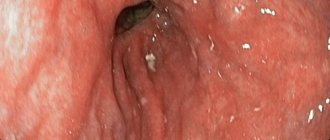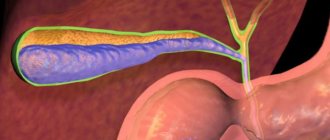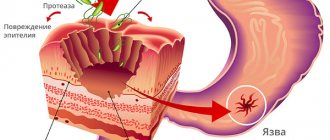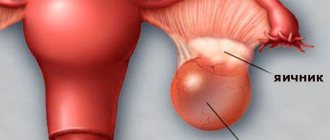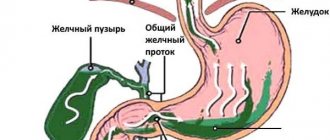Gastroduodenitis is a disease of the stomach or duodenum. It is expressed by inflammatory or regenerative changes in the mucous membrane of these internal organs. Often the disease is accompanied by changes in the structure of the glandular apparatus, as well as metaplasia or atrophy.
Gastroduodenitis can have different forms:
- sharp superficial;
- chronic superficial;
- erosive.
Individual treatment should be selected for each form of the disease. It is very important to take into account acidity, because treatment is prescribed depending on whether it is increased or decreased.
Both adults and children, both men and women, can suffer from gastroduodenitis. Particular care should be taken when treating gastritis in pregnant women.
Symptoms of gastroduodenitis
It is very difficult to distinguish gastritis from other gastrointestinal (gastrointestinal) diseases. Only a doctor can make an accurate diagnosis after an examination. However, to avoid complications, the patient can identify the problem by certain signs. Each form of gastroduodenitis differs in symptoms and, accordingly, has its own treatment characteristics.
Acute superficial gastroduodenitis
Symptoms by which you can decide that a person has acute gastritis:
- pale skin;
- unhealthy thinness;
- a noticeable coating on the surface of the tongue, usually white or yellowish;
- pain is felt in the right side (less often, near the navel or under the ribs) during palpation or when tapping.
A child may have acute gastroduodenitis if he:
- gets tired too quickly;
- periodically feels a headache;
- suffers from dizziness;
- has sleep disorders.
During an exacerbation of gastroduodenitis, you should stay in bed for at least a week. All this time you need to follow a special diet step by step. If the disease is accompanied by high acidity, you should use means to reduce it.
Chronic superficial gastroduodenitis
If the disease becomes chronic, exacerbation occurs regularly. The most active time for pain is autumn and spring. The advanced stage of the disease is determined by how much pain the patient feels and how long it lasts, as well as depending on the condition of his gastrointestinal tract.
The traditional duration of exacerbation of the chronic form of gastroduodenitis is from 7 to 10 days. In this case, pain on palpation may remain for a couple of weeks.
Chronic gastroduodenitis is divided into several types according to the type of complications:
- Chronic disease of ulcer-like form. Often this type of disease affects the duodenal bulb. This form of gastroduodenitis is the most common. Often it develops in the body in parallel with a gastric ulcer;
- Gastritis-like disease. Often, autoimmune atrophic gastritis or enteritis develops along with it. Atrophy is usually localized in the duodenum;
- Cholicestitis-like gastroduodenitis occurs in cases where the motor functions of the duodenum are impaired. This form of the disease involves difficulty in the passage of intestinal contents. The pain is localized in the right side of the abdomen, near the navel. Also, the stomach may growl and swell, sometimes a feeling of nausea causes belching with bitterness and vomiting, which removes bile;
- A pancreatitis-like disease is accompanied by pain on the right under the ribs, which usually occurs after eating a large amount of fatty foods. Rarely, the pain can be localized on the left under the ribs or take on encircling forms. The stool may be disrupted, the formation of gases may increase, and transient (milk) intolerance may appear.
Be sure to read:
Treatment of constipation
Chronic gastroduodenitis requires constant adherence to a diet. Do not neglect your diet, since a balanced diet is the key to success in the fight against the disease.
Has your cold persisted for several days? It is worth trying folk remedies to treat a runny nose.
Strengthening potency can be done with ginger and celery. More details are described in this article.
Are you worried about varicose veins? Use traditional medicine and find out how here.
If necessary, you can use means that increase the tone and performance of internal organs, which will help them in the fight against the disease. Before this, the source of the disease, Helicobacter, which provokes the development of erosions and ulcers, should be removed.
Erosive gastroduodenitis
An erosive type disease involves the formation of several erosions or small ulcers in the stomach or duodenum. If it is not treated in time, an ulcer often forms.
Symptoms of erosive gastroduodenitis:
- nausea;
- pain in the stomach;
- problems with appetite;
- bitterness in the mouth;
- vomiting blood (if there are a lot of erosions that bleed);
- black stool with blood;
- general weakness of the body, expressed in sleep problems and headaches.
Most symptoms of this form of the disease appear in the morning or before lunch.
You will learn how to treat chronic gastritis in this video.
Symptoms and causes of pathology
To begin treatment for gastroduodenitis, you need to consult a specialist. Based on the cause of gastroduodenitis, the clinical picture and the individual characteristics of the body, the attending physician will be able to draw up a treatment plan.
The reasons for the development of gastroduodenitis include stressful situations, improper and irregular nutrition, hereditary and endocrine factors, infections, and abuse of fatty and fried foods. With gastroduodenitis, the following symptoms appear:
- coating on the tongue;
- painful sensations in the stomach, as well as throughout the abdomen;
- dizziness, nausea and heartburn;
- fatigue, weakness;
- constipation and diarrhea;
- lack of appetite.
If these symptoms occur, you should definitely consult a doctor. Treatment should not be delayed, as untimely therapy can cause complications.
Gastroduodenitis can lead to the following complications: anemia, pancreatitis, immunodeficiency, polyposis, stomach and intestinal cancer, duodenal and gastric ulcers, exhaustion, extensive bleeding.
Folk remedies have proven themselves to be excellent in the treatment of gastroduodenitis. Before using any prescription, you should consult your doctor.
Nutrition for gastroduodenitis
Treatment and prevention of gastroduodenitis involves following a diet. It allows you to eat:
- Cereal and vegetable soups (can be with mushrooms, fish or dietary meat);
- Dietary meat prepared by frying, steaming and traditional cooking. The meat can also be stewed or cooked in the form of cutlets. Chicken or ham (without fat) is best;
- Low-fat fish, boiled or soaked herring. You can also eat black caviar;
- Milk (if there is no intestinal upset after taking it), butter, kefir, cream, yogurt, sour cream and cottage cheese, mild grated cheese;
- Soft-boiled eggs or omelet;
- Grains, such as semolina, buckwheat and rice. They need to be thoroughly boiled;
- Baking. But the diet prohibits butter dough. White bread should not be consumed when it is fresh, but gray bread is best;
- Vegetables and fruits that can be boiled or eaten raw (they should be grated). Drinking juices is also beneficial;
- Tea, coffee and cocoa. Some sweets are also allowed, such as marmalade;
- Sugar and salt can also be added to food, but they should not be abused.
Be sure to read:
How to treat stomach ulcers at home
You should especially add to your diet foods containing vitamins C, B1, B2 and PP.
Obviously, the diet is not strict. The most important thing is the correct diet. There are several rules:
- Do not take excessively hot or cold foods and drinks;
- solid foods must be thoroughly chewed;
- You should eat often, but in small portions.
https://youtu.be/KLO3vpNpWYY
Prevention
To prevent any diseases of the gastrointestinal tract, including gastroduodenitis, you should eat properly, nutritiously, choose high-quality food, and lead a healthy, active lifestyle. It is recommended to heat-treat food and drinks before consumption. If possible, you should avoid stress, do not abuse alcohol, and completely stop smoking. It is necessary to promptly and correctly treat any infectious and chronic diseases of the internal organs and nasopharynx.
Treatment of gastroduodenitis with folk remedies
Traditional medicine is increasingly gaining popularity as more and more people are convinced of its effectiveness. There are recipes for the treatment of gastroduodenitis that are intended for a specific form of this disease.
Treatment of acute gastroduodenitis
- Nettle, plantain, St. John's wort and chamomile flowers in a 1:1 ratio. Grind the mixture using a meat grinder or coffee grinder. Two tablespoons of the resulting mixture are poured into 500 ml of boiling water, placed in a thermos and left for ten hours. Take 60 ml of liquid (or less) three or four times a day before meals. Treatment lasts no more than one and a half months;
- Grind calamus root, wormwood, centaury, orange zest in a 1:1 ratio in a coffee grinder. Two tablespoons of the mixture are poured into 500 ml of boiling water and left in a thermos for ten hours. Take 60 ml of liquid before meals three times a day.
Elena Malysheva tells more about such a disease as gastroduodenitis in her program.
Treatment of chronic gastroduodenitis
- Squeeze the juice out of the red potatoes (without removing the skins). Drink half a glass half an hour before meals three times a day. The course lasts one and a half months. In this case, you need to take the juice for ten days, then pause for ten days, and so alternate treatment with breaks;
- Tea to eliminate bile. It consists of a tablespoon of three-leaf watch and a teaspoon of bologna myrtle. This mixture is poured with 200 ml of water and boiled for about ten minutes. Take a glass before meals three times a day.
Be sure to read:
Paraproctitis: treatment at home using traditional medicine
Treatment of erosive gastroduodenitis
- Honey (200 ml) is mixed with ground aloe leaves (200 ml). 200 ml of alcohol is added. The mixture is placed in the refrigerator for ten days. Take a tablespoon of the mixture before each meal;
- Potato, cabbage and carrot juices are taken every morning on an empty stomach, half a glass of each type of drink.
Herbal treatment can be combined with medications, but before doing so, you should consult a doctor.
Classification
The systematization is based on morphological changes (structural) and the duration of the disease. Gastroduodenitis can be divided into several forms: acute (up to three months) and chronic (more than six months).
During the catarrhal stage, the mucous membrane is not destroyed. When diagnosed, swelling and redness are visible. This form of the disease is easily cured.
Erythematous gastroduodenitis appears after the catarrhal form and is characterized by pronounced redness.
If there is chronic erosive gastroduodenitis, intestinal metaplasia often occurs (the appearance of mucous cells in the stomach; normally they are absent).
How to prevent gastroduodenitis
The most important thing in preventing gastroduodenitis is proper nutrition. This involves removing junk food from your diet and following a routine. You should forget about alcoholic beverages, as well as cigarettes and fasting (and similar methods to lose weight).
Under no circumstances should you eat a lot in the evening, and especially before bed. The last meal should be two hours before bedtime. It is necessary to ensure that a lot of chemical medications, especially antibiotics, do not enter the body.
Avoiding stress and a busy pace of life will help a lot. You should also be a regular patient at the dentist, even if the condition of your teeth does not bother you, you should have an examination on time. These factors cannot be treated negligently, since it is better to prevent the disease than to suffer from its consequences.
Exogenous development factors
- long-term treatment with antibacterial medications;
- abuse of junk food (fatty, spicy, processed foods);
— infectious pathologies of the oral cavity and pharynx;
- frequent drinking of alcohol, smoking;
— bacteria Helicobacter pylori (H. pylori), which cause erosive-hemorrhagic gastroduodenitis (scientifically proven fact).
Under the influence of negative factors (bile acids, hydrochloric acid), ulcerations appear on the walls of the stomach and wounds form, which often (in the absence of proper therapy) lead to the appearance of ulcers of the duodenum and stomach. This pathology is provoked by: hormonal disorders;
Contraindications
Some medications, as well as alcohol tinctures, may be contraindicated for use by young children and pregnant women. Therefore, before preparing a healing infusion, it is necessary to study contraindications to a specific plant. It is important to repeat recipes accurately; uncontrolled use of folk remedies can provoke complications or cause an allergic reaction. People with chronic diseases, hypertension, varicose veins and epilepsy should drink decoctions and infusions based on herbs with caution.
The most effective herbal teas
Of course, the most famous folk remedies are based on herbal remedies. Herbs for gastroduodenitis cope well with the clinical manifestations of the pathology. Typically, the following proven fees are chosen for therapy:
- Dandelion, St. John's wort, plantain, calendula flowers. For 1 l. take 2 tbsp. collection, leave for 6-8 hours. Use the product 30 minutes before meals, 100 ml.
- Peppermint, yarrow, parsley, fennel, marshmallow, centaury. The ingredients (30 ml) are also poured with boiling water and left for 12 hours.
- Smoky grass, rose hips, chamomile flowers, yarrow. All components are taken in equal proportions, add 0.5 liters. boiling water
- Licorice root, tansy, linden flowers, fennel fruits. A product based on these herbs perfectly eliminates the most common symptoms of the disease (belching, heartburn, bloating).
- St. John's wort, chamomile flowers, calamus rhizome, tansy. Add boiling water (1 liter) to a spoonful of the mixture and leave for 12 hours. Drink a herbal drink before meals, 0.5 cups.
- Nettle, dill seed, celandine, yarrow, string, St. John's wort. Prepared plant material (30 g) is poured with water (500 ml), boiling for several minutes. Next, the infusion is left for 12 hours.
Advice! Patients with an allergic predisposition should use herbal preparations with caution. After all, many herbs can cause allergies. In this case, you cannot do without consulting your doctor.
Every patient can successfully treat gastroduodenitis using folk methods. To achieve a quick recovery without harm to health, you need to use traditional medicine recipes together with a therapeutic diet and medications selected by a specialist. After all, it is possible to finally cope with pathology using only an integrated approach.
Source
Expert advice
The main effect in treatment with folk remedies is focused on reducing acidity. During an exacerbation, doctors recommend the following plants: white willow bark, calendula flowers, yarrow, and sea buckthorn oil. Also recommended for consumption: rose petals, celandine, flaxseed; in addition, it is worth consuming not only these herbs, but also those prescribed for gastritis with high acidity. Good effects on solving this problem: blueberry sprouts, leaves of coltsfoot, plantain, sage, caraway fruits and anise.
If gastroduodenitis is caused by stress, then you can take sedatives, for example, valerian infusion, mint tea.
What and how to take for the treatment of gastroduodenitis should be prescribed by a doctor.

